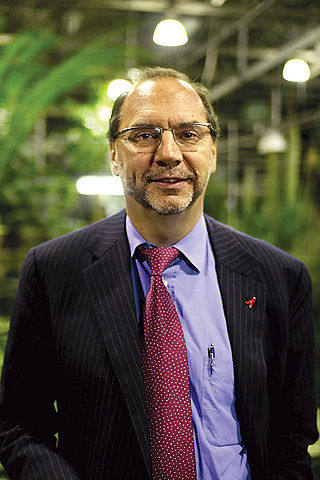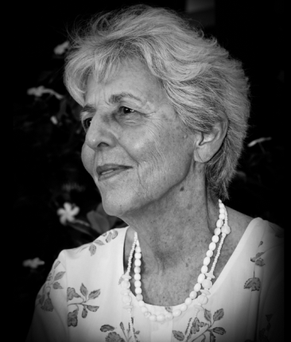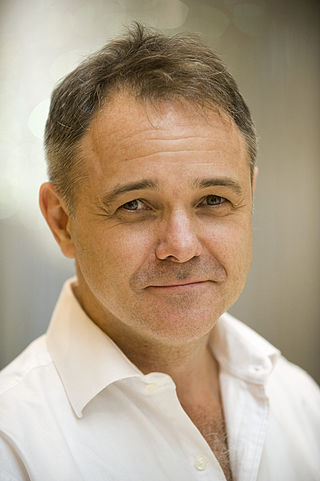
Sir Peter Karel, Baron Piot, is a Belgian-British microbiologist known for his research into Ebola and AIDS.

Environmental resource management or environmental management is the management of the interaction and impact of human societies on the environment. It is not, as the phrase might suggest, the management of the environment itself. Environmental resources management aims to ensure that ecosystem services are protected and maintained for future human generations, and also maintain ecosystem integrity through considering ethical, economic, and scientific (ecological) variables. Environmental resource management tries to identify factors between meeting needs and protecting resources. It is thus linked to environmental protection, resource management, sustainability, integrated landscape management, natural resource management, fisheries management, forest management, wildlife management, environmental management systems, and others.

Kissidougou is a city in southern Guinea. It is the capital of in the Kissidougou Prefecture. As of 2014 it had a population of 102,675 people.
The International Social Science Council (ISSC) was an international non-governmental organization promoting the social sciences, including the economic and behavioural sciences. Founded in 1952, the organization was based out of UNESCO headquarters in Paris, France.
Reginald Akindele Cline-Cole, is a retired University Senior Lecturer and scholar of Developmental Geography. Upon his formal retirement in May 2021, he is now seconded as a Senior Honorary Research Fellow in the Centre of West African Studies, University of Birmingham. This is an attestation of his wealth of experience and specialism in the area of African development.

Paul Richards is an emeritus professor of technology and agrarian development at Wageningen University, The Netherlands, and adjunct professor at Njala University in central Sierra Leone. He was formerly a professor in the Department of Anthropology, University College London for many years, and previously taught anthropology and geography, at the School of Oriental and African Studies, and the University of Ibadan, Nigeria.

The Institute of Development Studies (IDS) is a research and learning organisation affiliated with the University of Sussex in Brighton, England, and based on its campus in Falmer, East Sussex. It delivers research and teaching in the area of development studies.
The STEPS Centre was an interdisciplinary research centre hosted at the University of Sussex, funded by the Economic and Social Research Council. The Centre's research brought together development studies with science and technology studies. It was launched at Portcullis House in London on 25 June 2007 and closed in 2022.
Conservation refugees are people who are displaced from their native lands when conservation areas, such as parks and other protected areas, are created.

Olga Francesca Linares was a Panamanian–American academic anthropologist and archaeologist, and senior staff scientist (emerita) at the Smithsonian Tropical Research Institute (STRI) in Panama, who supported much of her research throughout her career. She is well known for her work on the cultural ecology of Panama, and more recently in the Casamance region of Southern Senegal. She is also concerned with the social organization of agrarian systems as well as the relationship between "ecology, political economy, migration and the changing dynamics of food production among rural peoples living in tropical regions".
Environmental social science is the broad, transdisciplinary study of interrelations between humans and the natural environment. Environmental social scientists work within and between the fields of anthropology, communication studies, economics, geography, history, political science, psychology, and sociology; and also in the interdisciplinary fields of environmental studies, human ecology and political ecology, social epidemiology, among others.

The Smith School of Enterprise and the Environment is an interdisciplinary research centre of the University of Oxford that focuses on teaching research, and engagement with businesses and enterprises for long term environmental sustainability. The Oxford Smith School was established with the vision of a net-zero emissions future alongside achieving the Sustainable Development Goals, supported by a sustainable global economic and financial system. The school has a broad profile of research, teaching, enterprise engagement, and partnerships to support this vision.

Sir Jeremy James Farrar is a British medical researcher who has served as Chief Scientist at the World Health Organization since 2023. He was previously the director of The Wellcome Trust from 2013 to 2023 and a professor of tropical medicine at the University of Oxford.

Fatima Denton is a British-Gambian climatologist. She is the director at the Ghanaian branch of the United Nations University, at the UNU Institute for Natural Resources in Africa (UNU-INRA) in Accra. She focuses on innovation, science, technology and natural resource management. She partners with countries such as Benin and Liberia to develop and implement country needs assessment missions.
Wendy Rosalind James, was a British social anthropologist and academic. She was Professor of Social Anthropology at the University of Oxford from 1996 to 2007, and President of the Royal Anthropological Institute from 2001 to 2004.

Sir Christopher John MacRae Whitty is a British epidemiologist, serving as Chief Medical Officer for England and Chief Medical Adviser to the UK Government since 2019.

Neil Morris Ferguson is a British epidemiologist and professor of mathematical biology, who specialises in the patterns of spread of infectious disease in humans and animals. He is the director of the Jameel Institute, and of the MRC Centre for Global Infectious Disease Analysis, and head of the Department of Infectious Disease Epidemiology in the School of Public Health and Vice-Dean for Academic Development in the Faculty of Medicine, all at Imperial College London.

In sociology, societal transformation refers to “a deep and sustained, nonlinear systemic change” in a society. Transformational changes can occur within a particular system, such as a city, a transport or energy system. Societal transformations can also refer to changes of an entire culture or civilization. Such transformations often include not only social changes but cultural, technological, political, and economic, as well as environmental. Transformations can be seen as occurring over several centuries, such as the Neolithic Revolution or at a rapid pace, such as the rapid expansion of megacities in China.
Green grabbing or green colonialism is the foreign land grabbing and appropriation of resources for environmental purposes, resulting in a pattern of unjust development. The purposes of green grabbing are varied; it can be done for ecotourism, conservation of biodiversity or ecosystem services, for carbon emission trading, or for biofuel production. It involves governments, NGOs, and corporations, often working in alliances. Green grabs can result in local residents' displacement from land where they live or make their livelihoods. It is considered to be a subtype of green imperialism.
The International Panel of Experts on Sustainable Food Systems (IPES-Food) is an international non-profit association, with the goal to promote transition to sustainable food systems around the world and it was registered in Belgium in the year 2015. It was founded by Daniel et Nina Carasso, Olivier De Schutter, former UN special rapporteur on the right to food, and Emile Frison, former Director General of Bioversity International to inform debates on food system reforms around the world. It conducts research focused in the domains of political economy, nutrition, climate change, ecology, agronomy, agroecology, and economics, as well as direct involvement in political processes.












